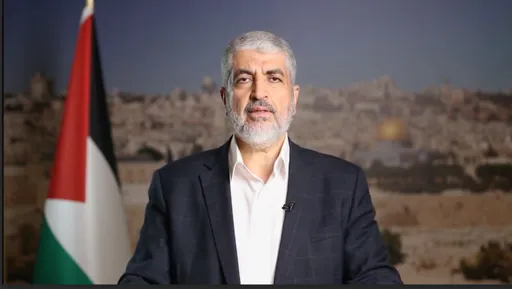It was a rather cordial encounter between Turkey’s Foreign Minister Mevlut Cavusoglu and his Greek counterpart, Nikos Dendias, when the two top diplomats met in Athens on Monday.
Turkey and Greece, the two neighbouring countries and NATO allies, are struggling to sort out multiple issues ranging from differences over territorial limits in the Mediterranean Sea to the deployment of Greek naval ships on islands close to the Turkish border.
In April, the two diplomats had publicly clashed during a press conference after Dendias brought up the controversial subject of EU sanctions against Turkey if, what he said, the Greek sovereignty was ever compromised.
Although the diplomatic spat caused much bitterness, the two sides subsequently agreed on Cavusoglu’s visit to Greece in a bid to keep the political dialogue intact.
Turkey and Greece have agreed to recognise each other’s Covid-19 vaccine certificates, allowing their citizens to easily cross borders as the tourism season approaches, the two diplomats announced on Monday.
Both countries have a large tourism industry, which has been battered by the pandemic.
Cavusoglu’s visit comes ahead of a possible interaction between Turkey’s President Recep Tayyip Erdogan and the Greek Prime Minister Kyriakos Mitsotakis during a NATO summit in Brussels next month.
In what can be seen as a move towards normalisation of ties, it was also announced that the two sides will cooperate on multiple areas including transport, energy and environment.
But there are a host of thorny issues, which have undermined relations. Here’s a brief history of some of those bottlenecks:
Territorial claims
Greece wants to expand the boundary of its territorial waters. Right now it has a claim over an area that extends 6 nautical miles into the Aegean Sea from its western coastline. It wants to increase that to 12 nautical miles in a move that’s sure to complicate ties with Turkey.
Ankara has long maintained that such a unilateral decision without considering the rights of the neighbouring states is unacceptable. Even with that 6 nautical miles, Greece already controls most of the Aegean Sea territory, leaving a minuscule - or just 7.5 percent of the sea - to Turkey.
Greece has used its islands as a pretext to claim almost all of the sea territory along Turkey’s western and southern coasts as its own.
Militarising the islands
Over the years, Greece has stationed troops and built military infrastructure on its islands scattered around the Aegean Sea. Some of these Greek islands are nearer to the Turkish coast and far from the Greek mainland.
For instance, Kastellorizo, also known as Meis, is just 2 km away from Turkey's Mediterranean coast while its distance from the Greek mainland is 600 kilometres (370 miles).
Just a few weeks ago, Turkey’s National Defence Ministry spokesperson said that Greece continues to deploy naval vessels on demilitarised islands in the eastern Aegean Sea.
Even though as per multiple international agreements, such as the 1947 Paris Peace Treaty, Meis along with other islands can not be militarised, Athens has gone ahead despite multiple warnings from Ankara.
Turkey says Athens has armed 18 out of its 23 islands.
The discovery of gas reserves in the eastern Mediterranean has made the Turkish-Greek maritime disagreement even more contentious as the two sides vie for natural resources. And it has put the divided Cyprus island in the eye of the storm.
The issue of Cyprus
The two sides hold completely different positions on the issue of the island of Cyprus, which is divided between the Greek Cypriots and the Turkish Republic of Northern Cyprus (TRNC).
From time to time, attempts were made to iron out the differences but without any success.
In the last few years, the Greek Cypriot Administration has signed multiple offshore petroleum exploration contracts without consulting the Turkish Cypriots.
Ankara has all along maintained that Turkish Cypriots must have a share in the offshore oil and gas finds in the Eastern Mediterranean.
Ankara last year sent several drillships in the region, insisting that it was asserting its own offshore rights, as well as those of the TRNC.
Turkey, which has the longest continental coastline in the Eastern Mediterranean, has rejected the maritime boundary claims of Greece and the Greek Cypriot Administration in the region, saying that these excessive claims violate the sovereign rights of both Turkey and the Turkish Cypriots.























